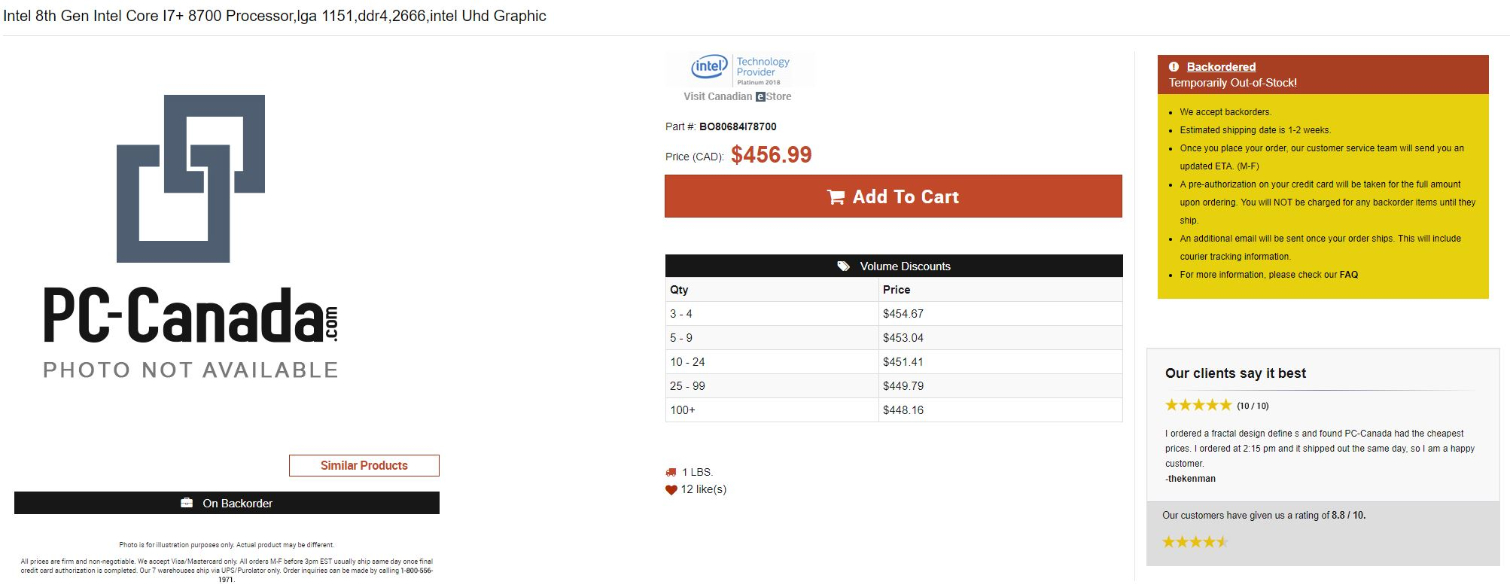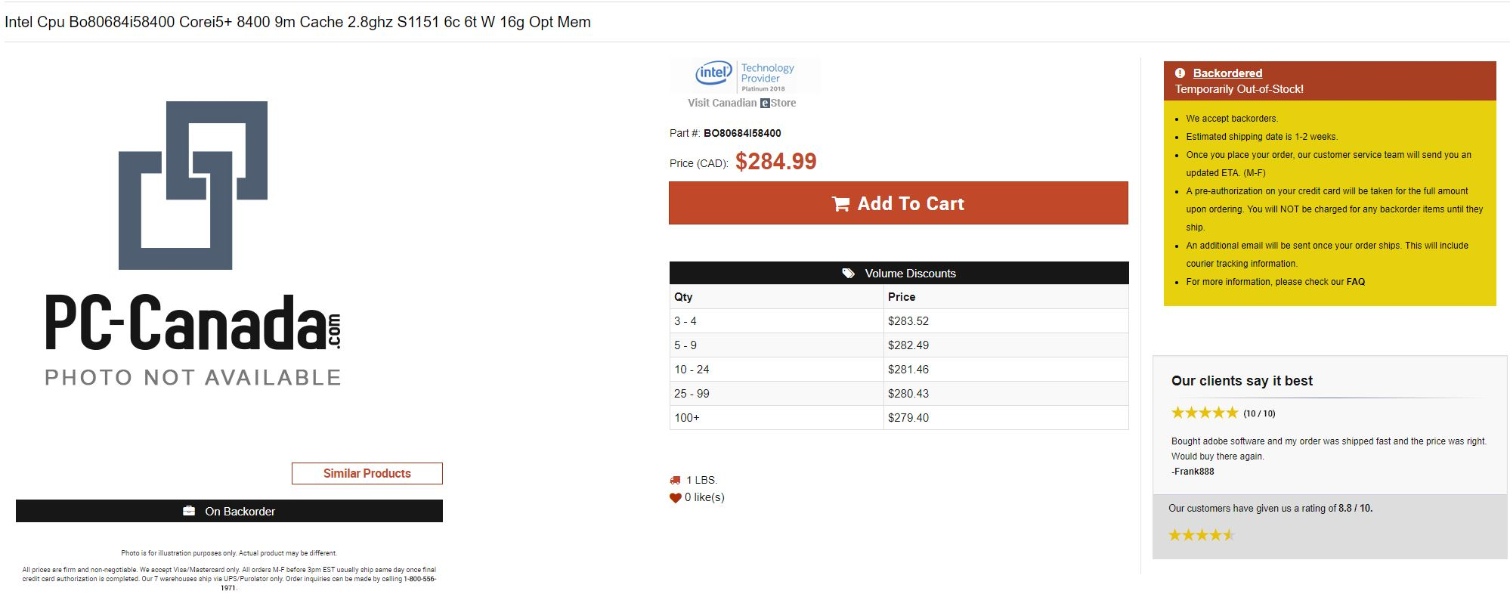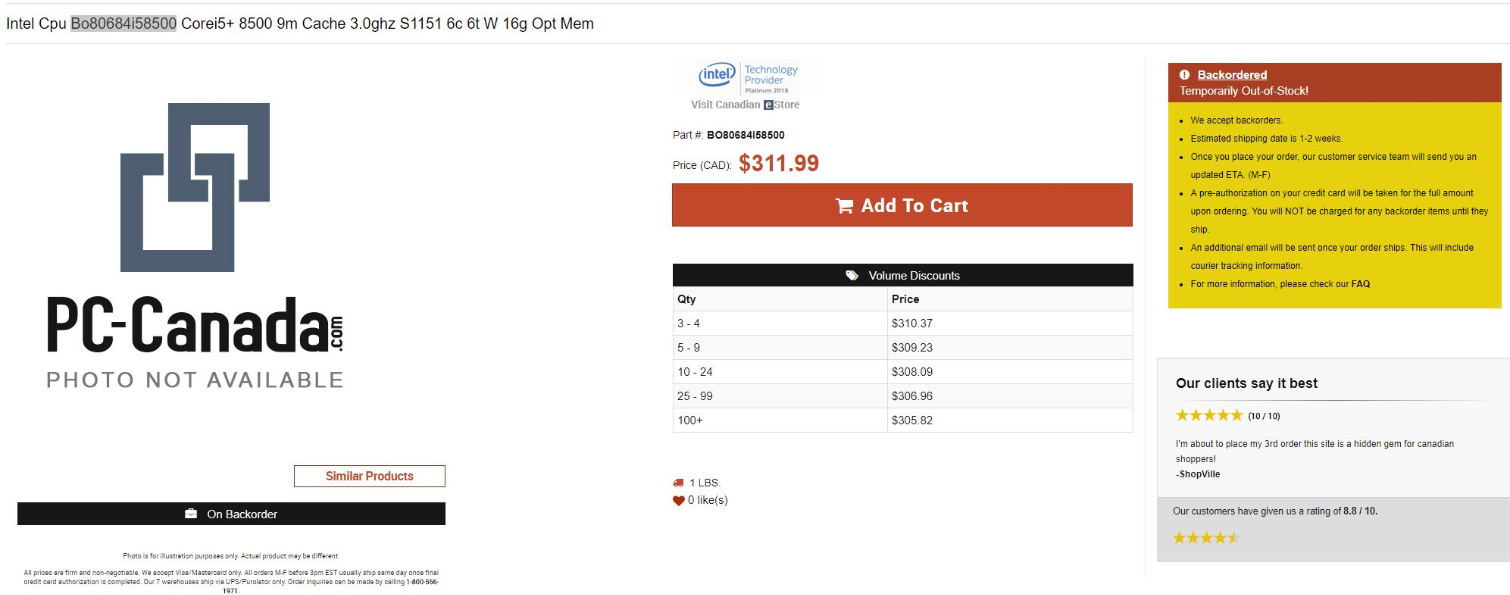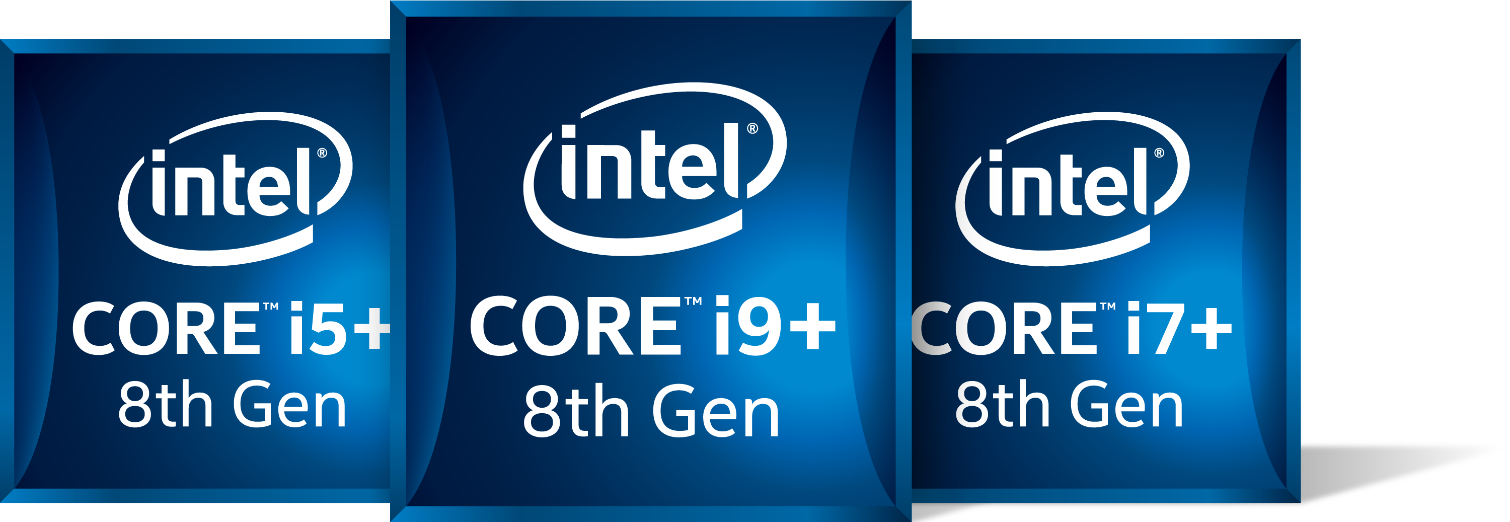Intel Sneaks Out Core+ Processors With Bundled Optane Drives (Update: Pricing, Availability)
Update, 4/6/18, 8:30am PT: Intel responded with availability and pricing, which you can find below.
Original article, 4/5/18, 9:45am PT:
Intel's recent eighth-gen processor launch found the company adding yet another hieroglyphic to its product naming convention in a bid to "simplify" its stack. Intel's latest branding effort comes in the form of the "Core+" branding, which the company told us indicates the processors, or the devices they are installed in, come with Optane memory. Now it turns out that the company is also offering CPUs with a bundled 16GB Optane memory module.
Intel's Optane memory is a collection of software and hardware, such as 3D XPoint memory, that leverage the power of next-generation memory to boost storage performance. The Optane modules come as both cache and normal bootable SSDs that fill the good, better, best verticals. As we covered earlier, Intel now also supports using Optane caching with a secondary storage volume. Unfortunately, the speedy new devices aren't compatible with all Intel processors and platforms.
Intel is adding a "+" marking to the badges of some processors and OEM devices, like notebooks. The badge indicates that the processor comes with bundled Optane memory or the device already has one installed. Of course, this doesn't help much for the average consumer that has no idea what the new symbol represents. In fact, it is likely even more confusing.
The new branding also marks the debut of new CPU bundles that come 16GB Optane Memory modules, meaning you can use the small M.2 SSD to boost your storage performance. Nothing comes for free, though.
| Kit | Bundle With 16GB Optane (CAD) | Processor Only (CAD) | Part Number |
|---|---|---|---|
| Core i7-8700 | $457 | $403 | BO80684I78700 |
| Core i5-8500 | $312 | $261 | BO80684I58500 |
| Core i5-8400 | $285 | $236 | BO80684I58400 |
The first news of these kits popped up in Japan yesterday, where they are already at retail, but we've managed to find a few of the new products at PC-Canada. The online retailer lists the prices in CAD. As we can see above, we are looking at a ~$50 (CAD) premium for the Optane bundle. PC-Canada doesn't sell Optane modules separately, so we can't provide a direct comparison with CAD pricing. After conversion, it appears that the extra charge is roughly equivalent to the $39 retail price of the 16GB Optane module.
Get Tom's Hardware's best news and in-depth reviews, straight to your inbox.
Curiously, it appears that the new bundles don't come with a discount. Intel updated its CPU price list recently, but it doesn't include any Core+ models. PC-Canada lists the new bundles as backordered for 1 to 2 weeks (see screenshots below), which may indicate the timing of Intel's launch. We've reached out to Intel for official pricing and U.S. availability.
EDIT: Intel responded with availability and recommended pricing, which will vary by reseller. The bundles officially launched on April 3, but will be on the shelves at various retailers soon:
Numerous retailers in North America will be carrying the bundled product post-launch, including Amazon.com, NewEgg.com and other leading online retailers of technology products. Intel 8th Gen Core i5+ 8400 = $215Intel 8th Gen Core i5+8500 = $235Intel 8th Gen Core i7+8700 = $346
Intel® Optane™ memory requirements:Aa 7th Gen or later Intel Core™ processorAn Intel® 200 series or later chipsetM.2 type 2280-S3-B-M connector on a PCH Remapped PCIe* ControllerLanes in a x2 or x4 configuration with B-M keys that meet NVMe* Spec 1.1 System BIOS that supports the Intel® Rapid Storage Technology (Intel® RST) 15.5 or later driver.
Bundle pricing reflects a premium over the recommended pricing for the processor alone. The price increases are roughly equivalent to the price of a 16GB Optane module.




Paul Alcorn is the Editor-in-Chief for Tom's Hardware US. He also writes news and reviews on CPUs, storage, and enterprise hardware.
-
Barty1884 So the "bundle" offers no benefit in pricing vs buying them individually? :lol:Reply
I still don't understand why Optane even exists.
Small, cache drive would benefit older systems.... but you have to be on KL (?) or newer for support?
The vast majority of people building on a new platform are using full-blown SSDs.. no? -
Snipergod87 Reply20859503 said:So the "bundle" offers no benefit in pricing vs buying them individually? :lol:
I still don't understand why Optane even exists.
Small, cache drive would benefit older systems.... but you have to be on KL (?) or newer for support?
The vast majority of people building on a new platform are using full-blown SSDs.. no?
Its also amusing that Optane isnt supported on the 310 chipset either -
Barty1884 Seriously? Haven't read much into the new chipsets yet.Reply
That's ridiculous. To me, that's exactly who something like Optane is aimed at? Very tight budgets, with no room for luxuries like an SSD.
*sigh* -
hons BARTY1884 17 minutes agoReply
So the "bundle" offers no benefit in pricing vs buying them individually? :lol:
I still don't understand why Optane even exists.
Small, cache drive would benefit older systems.... but you have to be on KL (?) or newer for support?
The vast majority of people building on a new platform are using full-blown SSDs.. no?
For the same price you got a extra "+". :)
Free from Intel!!!!! -
Giroro Optane exists so you can turn your 3TB+ HDD into a SSHD that actually works as advertised.Reply
But since there is no discount, skip the bundle and get the 32GB optane instead; it performs better. Actually everybody who is interested in optane is probably already wants the 32GB version, which would explain why intel is looking for creative ways to clear out the 16GB cards before they announce the next generation. -
Barty1884 Reply20859722 said:Optane exists so you can turn your 3TB+ HDD into a SSHD that actually works as advertised.
I understand why it's *marketed* to exist, but not actually "why".
The minimum support (KL i3, B250, DDR4 etc) is a bare minimum $250 before you can even have the 'privilege' of Optane :lol: As an upgrade to older systems, for a relatively cheap outlay (perhaps paired with a PCIe addon card), it would make some form of sense...... in it's current state, I just don't see how.
An actual SSD, 250GB range, albeit SATA3 and on the budget end... can frequently be found for $60-$70.
https://pcpartpicker.com/product/M3RzK8/adata-ultimate-su650-240gb-25-solid-state-drive-asu650ss-240gt-c
The same (general) ballpark as Intel's over-hyped cache drive's MSRP at $77 :lol: -
stdragon Reply20859841 said:20859722 said:Optane exists so you can turn your 3TB+ HDD into a SSHD that actually works as advertised.
I understand why it's *marketed* to exist, but not actually "why".
The minimum support (KL i3, B250, DDR4 etc) is a bare minimum $250 before you can even have the 'privilege' of Optane :lol: As an upgrade to older systems, for a relatively cheap outlay (perhaps paired with a PCIe addon card), it would make some form of sense...... in it's current state, I just don't see how.
An actual SSD, 250GB range, albeit SATA3 and on the budget end... can frequently be found for $60-$70.
https://pcpartpicker.com/product/M3RzK8/adata-ultimate-su650-240gb-25-solid-state-drive-asu650ss-240gt-c
The same (general) ballpark as Intel's over-hyped cache drive's MSRP at $77 :lol:
Agreed....right up to the point where Intel just announced with the new RST driver, you will be able to use Optane with an HDD other than your primary boot device.
While other applications could benefit, for gamers at least, this means having a 3+TB SSHD drive used to hold your Steam library to improve loading times for the games most often played. That's huge, because buying anything larger than a 256GB M.2 NVMe drive is a waste of money if you can add a secondary HDD and Optane unit later. And remember, Optane doesn't offer much in terms performance over NVMe drives with the exception of random IOPS; Optane stomps the competition in that one metric!
-
Barty1884 Makes some sense in that scenario, I guess.Reply
But it's still a cache drive. Not benefiting much beyond THE most frequently used title with 16-32GB though. -
cryoburner Reply
Technically, someone on a "very tight budget" could get a 120-128GB SSD for the same price as a 16GB Optane cache. There are multiple SSDs in that capacity range available for less than $40. And that should be plenty of space to store one's OS and applications, while most large bulk data files such as video typically won't really benefit from being stored on an SSD or cached with Optane anyway, and should be fine on a hard drive without it. Or, for just $20 more, you can double that SSD capacity to 240GB, enough to also store some modern games that are actively being played. So, I don't actually think it's a particularly good fit for budget systems.20859560 said:That's ridiculous. To me, that's exactly who something like Optane is aimed at? Very tight budgets, with no room for luxuries like an SSD.
For a more mid-range gaming system, again, there are SSDs available, including some 480-512GB models in the $110-$120 range, which should hold a decent number of games. Maybe someone could see some occasional benefit from adding an Optane cache to a hard drive containing lesser-played titles in their extended Steam library, but how much is a 16GB cache really going to help load times when divided across a large collection of infrequently played games? Relatively few of any game's data files will ever get cached, and any game that you play regularly enough to get its data cached should probably be moved over to an SSD for more predictable performance.
